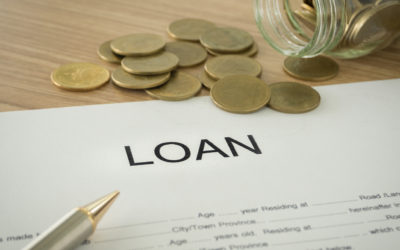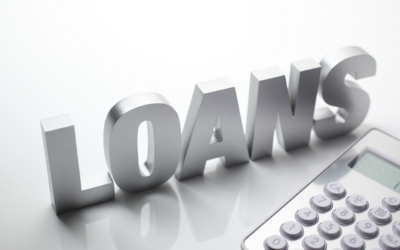A prepayment penalty is a type of fee which the borrowers need to pay to the lenders. The fees are charged when the borrower pays a complete or part of their loan ahead of schedule.
The details of such fees are mentioned on the loan document and are allowed in certain types of loans like investment property loans, conventional mortgages, and personal loans. The fees generally are around 2% of the outstanding balance, which falls for the first several years of a loan.
The prepayment penalty sometimes is considered unwelcome for people who are willing to reduce their debt and acquire equity in their property. If you wish to avoid paying such penalties, you can be careful about the loan you are taking and your negotiations with the lender before closing the deal.
Prepayment penalty-what is this?
Prepayment penalty, also known as prepaid, is the fees that the lenders charge the borrower when they pay off their loan within a few years after taking the loan. The lenders generally stop charging the amount once the loan has been in repayment for at least 3 to 5 years. The lenders use the fees to dissuade the borrowers from paying off the loan or refinancing the mortgages, leading to a loss of interest income.
The law generally prohibits prepayment penalties for different home loans like USDA, FHA, and student loans. While in the other cases, the lender can charge an early penalty, but they include both financial restrictions and time under the law.
How prepayment system works?
Not many borrowers can afford to pay off their loan within 1 to 2 years of financing. But many consider refinancing a loan to take advantage of lower interest rates or improve their credit score. However, the prepayment penalties make it expensive to refinance within the first few years of taking a loan. The rate of penalties differs for different lenders and loan types.
In some cases, the lenders avoid prepayment penalties while the others are restricted. When the prepayments are charged, they are taken only during the first few years of the loan, after which they are not considered—the time for which usually is after 3 to 5 years.
The prepayment penalties are charged only for certain types of loans. However, the details of which are always present on the documents. It is essential to read the disclosure well before accepting a loan offer.
Prepayment penalty costs
The prepayment penalties generally start around 2% of the total outstanding balance when you pay off the loan during the first year. However, the penalty is higher in some cases, but many loan types are restricted to a 2% maximum penalty rate. After this, the penalties decline until they reach zero. When the prepayment penalties are assessed, it is on the outstanding balance when the loan is paid.
Many prepayment clauses include the provisions for the borrower to pay off a certain amount of mortgage without any worry for fees. It means if you wish to make extra payments during the early years of your loan without considering the entire payment or refinancing, then it will not be an issue.
Some hard money lenders use different methods to calculate the prepayment penalties. For example, the lenders generally charge fees equal for a certain month of interest credit but not an outstanding loan balance. Irrespective of how the fees are structured, they must be mentioned on the loan agreement to be enforceable.
How can you avoid a prepayment penalty?
To avoid your prepayment penalties on the next mortgage loan, you have to avoid certain lenders. The alternative lenders like non-bank lenders, and online lenders, specializing in subprime loans promise to offer you fast lending. Besides, there are certain products that you must stay away from to avoid getting hit by any prepayment fees.
For instance, it will be better to avoid alternative loan products and stick to the loans you can find anywhere. In this way, you will better negotiate for the prepayment penalties when the lender tries to include them. Another thing you can avoid is frequent refinancing, as it offers a lender a signal that you are likely to refinance the loan as soon as the rate decreases. It would be better to find a co-signer or offer a higher down payment to get a better loan term.
Lastly, you can simply wait for the prepayment penalty phase to pass out before you make your payment or refinance the loan to avoid prepayment penalties. You can even consider making extra monthly payments that fall under the limit of the amount you can pay back each year without triggering the payment of fees.
Is paying a prepayment penalty worth the cost?
Suppose you can afford to pay off the mortgage within the first year of borrowing, or you can refinance at a much lower rate. In that case, it will be better to pay off the penalty as the amount you are hoping to save in the interest payments may outweigh the cost of the penalty.
While if you cannot afford to pay off the mortgage until the prepayment penalties phase has passed, then it’s better to wait. The interest you pay on your loan will be tax-deductible, and the payable will only be deducted if it’s a business expense.
An exception here can be made on a financial loan at a much lower rate. It will help save your money on the interest that will recoup the prepayment penalty just within a year. In such cases paying for prepayment penalties are worth the cost.
Why do lenders charge prepayment penalties?
The lenders generally charge the penalties to prevent the borrower from paying off the loan ahead of time, which will make them lose out on the interest income. The lenders have committed to an amount of time to evaluate the underwriting of the loan and the borrower.
Without a prepayment provision, a borrower can simply refinance the property when he finds a better rate. Thus, having a prepayment penalty in the loan clause prevents them from paying off the loan or refinancing.
But it offers them more reasons to review the loan documents well before they finance a loan from a lender.
Conclusion
It is pretty challenging to avoid the prepayment penalties. You have to be extra careful while taking a loan or finding a lender for acquiring the necessary financing. In such situations, professional support can be highly beneficial.
You can contact Private Capital Investors to get all the help you need. We have experienced professionals who will help you find something suitable for your requirement and comes with no prepayment penalties. With our support, you will find the right deals without any trouble later.
So instead of taking the risk of finding a lender yourself, it’s better that you avoid all the hassle by allowing us to take necessary measures on your behalf. So, contact us today to get help.





